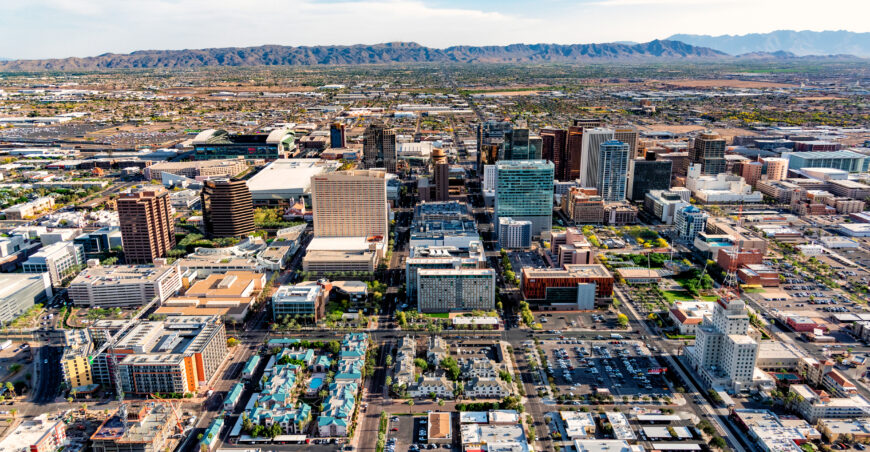We are all aware about how the COVID-19 pandemic had a significant impact on the commercial real estate market and contributed to an economic crisis in the sector in various ways. The impact of inflation on commercial real estate has been very visible, especially to investors. Specifically speaking, reduced demand for office space, declined retail sector and increased vacancies in retails because of numerous store closures and bankruptcies are some of the challenges the country faced. Moreover, cashflow problems for landlords and financing challenges are also observed because lenders became more cautious and conservative in their lending practices due to the economic uncertainties caused by the pandemic. The long-term effects of the pandemic on the commercial real estate sector will likely continue to evolve as the situation unfolds and the economy adapts to changing conditions
Property owners, investors, and industry professionals will need to adapt to these changes and consider new strategies to navigate the challenges brought about by the pandemic. So, what are a few examples of these adaptations? First, to cope with changing market dynamics, property owners and developers need to explore adaptive reuse and repurposing of commercial properties. Second, health and safety concerns must be more prominent in property management and building design. Investment in sustainable, health-conscious features and ideal property location gained importance in commercial real estate. Lastly, they need to shift in demand and location preferences: The pandemic accelerated certain pre-existing trends, such as the desire for more outdoor space, less densely populated areas, great investment opportunities and of course, the resilience of the state amidst economic crises.
The commercial real estate market in Arizona has long been a source of intrigue for investors and entrepreneurs. Boasting a diverse landscape, a thriving economy, and an attractive lifestyle, it’s no wonder that Arizona remains an appealing destination for those seeking opportunities in the commercial real estate sector even before the pandemic. In this article, we’ll delve into the state’s position in the United States for investing in commercial real estate and explore how Arizona remains resilient even in the face of high-interest rates and inflation.
Arizona’s Allure for Commercial Real Estate Investment
Arizona, the Grand Canyon State, has long been regarded as a prime location for commercial real estate investment. The reasons are multifaceted, beginning with its rapidly growing population. Because of Arizona’s great weather; not to mention low risk on storms, tax-friendly properties and a good place for retirement, many out-of-state investors look to various cities in Arizona to build and invest capital. The state’s population has been consistently on the rise, thanks to both natural population growth and migration from other states. This influx of residents fuels the demand for various types of commercial properties, from office spaces to retail establishments.
Moreover, Arizona’s diversified economy is another draw for investors. The state has transitioned from being predominantly dependent on the real estate and construction sectors to having a more robust and diverse economy. The presence of major corporations, burgeoning technology hubs, and strong educational institutions has created a demand for commercial real estate across different sectors.
Ranking in the United States
Arizona’s commercial real estate market has been gradually ascending the ranks, gaining recognition on the national stage. One of the key factors contributing to this ascent is the state’s business-friendly climate. According to Private Capital Investors, Arizona has good market fundamentals in the state ensure real estate dealings in an average of fewer than 30 days. In addition to that, AZ Big Media also claims that Arizona is number 2 state for commercial real estate development, not only that, but the state also has three of the top 30 most sought-after cities for renters!
Arizona is consistently ranked among the top states for business because of low corporate taxes, favorable regulations, and a generally pro-business environment. This positive business climate has not only encouraged local businesses but also attracted new companies looking to establish a presence in the Southwest. Furthermore, the state’s strategic location between California and Texas, two economic powerhouses, has made it an attractive option for companies seeking to expand or relocate. The relative affordability of commercial real estate in Arizona compared to these neighboring states is a significant driver of investment.
In terms of specific property types, Arizona’s retail and industrial sectors have been particularly robust. The growth of e-commerce has fueled demand for distribution and logistics centers, making industrial properties an appealing investment option. Meanwhile, the state’s retail sector has benefited from both a growing population and a strong tourism industry, contributing to the need for shopping centers and other retail spaces.
Resilience Amidst High Interest Rates and Inflation
Arizona’s commercial real estate market is not immune to the broader economic challenges of high-interest rates and inflation. However, the state has displayed remarkable resilience in the face of these challenges.
- Inflation Hedge: Real estate, including commercial properties, has historically served as an effective hedge against inflation. Arizona’s commercial real estate market has seen steady appreciation in property values, helping investors preserve their wealth even in inflationary environments.
- Economic Diversity: Arizona’s diversified economy is less susceptible to the impacts of high-interest rates and inflation. While these macroeconomic factors can negatively affect specific sectors, the state’s economy spreads the risk, cushioning the impact.
- Tax Benefits and Favorable Market Conditions: Arizona’s commercial real estate market offers favorable tax benefits to property investors. The state has lower property taxes compared to many other markets, allowing investors to maximize their returns. Additionally, the region’s strong economy and positive population growth contribute to a stable and prosperous market.
- Population Growth: The state’s consistent population growth drives demand for commercial real estate. This, in turn, supports rental rates and property values, helping investors weather economic storms.
- Construction demand: When compared to the “lucrative” commercial investment opportunities in cities like Seattle and San Francisco, Phoenix has a much better outlook in terms of construction demand.
- Strong Fundamentals: Arizona’s strong real estate fundamentals, including a growing job market and low vacancy rates in key commercial sectors, continue to make it an attractive destination for investors.
- International investors: Foreign investors are attracted to the state for many of the same reasons why domestic investors are flocking to Arizona as well: strategic geographic location, favorable regulatory environment, availability of land, amenable climate and a built-in talent pipeline to draw a skilled workforce.
Arizona’s business growth has been phenomenal, making it the best investment opportunity despite being often overlooked in the mainstream media. The commercial real estate market in Arizona is a shining example of resilience amidst economic challenges. The state’s strategic location, business-friendly environment, and diverse economy have positioned it favorably in the United States for commercial real estate investment. While high-interest rates and inflation are challenges faced by all markets, Arizona’s real estate market remains resilient due to its population growth, economic diversity, and strong fundamentals. As investors seek opportunities in the commercial real estate sector, the Grand Canyon State continues to beckon with its promise of sustained growth and prosperity.
















